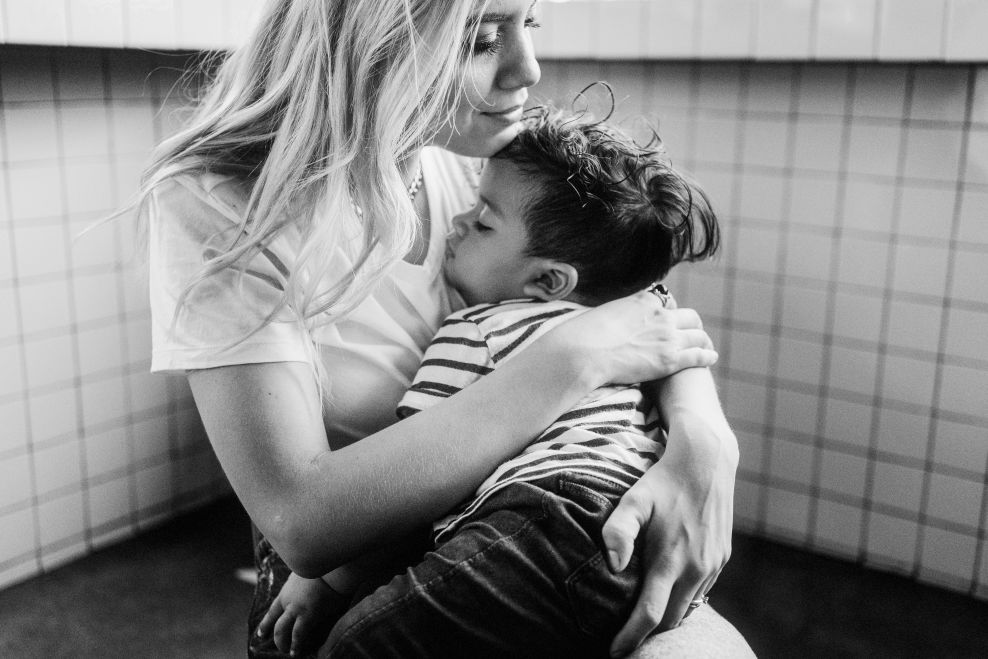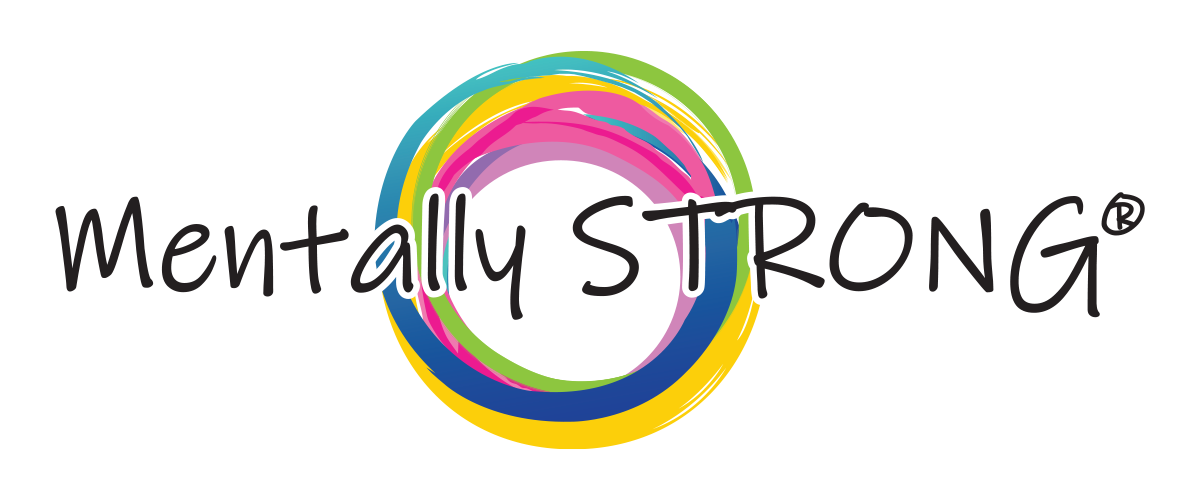If you’ve recently lost your mother, I want to start by saying that I’m truly sorry for your loss. I know that no words can fully capture the pain you’re feeling right now, but I want you to know that you’re not alone. Losing your mother is one of the most profound and heartbreaking experiences you can endure. It’s a loss that shakes the very foundation of who you are, leaving you feeling untethered and vulnerable.
Grief, as I’ve come to understand it, is love with nowhere to go. When your mother is no longer physically here, that love can feel stranded, searching for a way to express itself. It’s okay to feel lost, to feel like the world has changed in an instant. Your mother was not just a parent—she was a source of comfort, guidance, and unconditional love. Her absence leaves a void that can seem impossible to fill.
In this difficult time, I want to offer you a space where your feelings are valid, where your grief is understood, and where you can find some comfort and support as you navigate this overwhelming journey. Through my own experiences with loss and the insights I’ve gained, I hope to provide you with a bit of solace and the reassurance that, even in your darkest moments, there is a path forward.
The Loss of a Mother

Losing a mother is an experience that shatters the very foundation of our lives. It’s a profound loss that leaves a void no one else can fill. Mothers are often our first source of unconditional love, guidance, and support. Their presence in our lives shapes our identity, our values, and the way we navigate the world. When that presence is suddenly taken away, it can feel as if the world has stopped turning, leaving us to grapple with an overwhelming sense of emptiness and sorrow.
The loss of a mother is not just the loss of a person; it’s the loss of a nurturer, a confidante, and a lifelong companion. This grief is often accompanied by a deep sense of disorientation, as the person who anchored us to our past and guided us into the future is no longer there. The pain of such a loss can feel unbearable, and the journey toward healing and peace may seem impossible.
Importance of Acknowledging Grief
Grieving the loss of your mother is a process that requires acknowledgment and acceptance. It’s essential to understand that grief is not something to be avoided or suppressed. Instead, it is a natural and necessary response to loss. Acknowledging your grief is the first step in the healing process. It allows you to honor the depth of your love and the significance of the relationship you had with your mother.
Grief is a testament to the bond you shared, and by acknowledging it, you give yourself permission to feel, to mourn, and to begin the journey toward healing. Suppressing grief can lead to unresolved emotions that may manifest in other aspects of your life, making it even harder to move forward.
The Emotional Journey of Grieving a Mother
Grieving the loss of your mother is a deeply personal and emotional journey. It’s not just about mourning her absence, but also about navigating the complexities of a relationship that has shaped who you are. For me, grief has been an ongoing process, one that ebbs and flows, touching different parts of my life in unexpected ways. Whether you had a close, nurturing bond or a more complicated relationship, the loss of your mother stirs emotions that are hard to put into words. It’s important to allow yourself to feel these emotions fully, without judgment. This journey is not linear, and it doesn’t follow a set path, but understanding that your grief is an expression of your love can be a comforting thought.
Coping with Shock and Numbness
The initial shock of losing your mother can leave you feeling numb, as if you are moving through a fog. This numbness is a defense mechanism, a way for your mind to protect itself from the full impact of the loss. During this time, you may find it difficult to process the reality of what has happened. It may feel like a bad dream from which you cannot wake up.
Allowing yourself to experience this numbness is a crucial part of the grieving process. It gives you the space to gradually come to terms with your loss, without being overwhelmed by the full weight of your emotions all at once. Over time, as the shock begins to wear off, other emotions may start to surface, and you may find yourself feeling a range of intense and sometimes conflicting emotions.
The Range of Emotions Experienced (Anger, Guilt, Relief)
Grief is not a linear process, and the emotions you experience may fluctuate from one moment to the next. You may feel anger, directed at yourself, others, or even at your mother for leaving you. This anger can be a way of expressing the deep pain and helplessness you feel.
Guilt is another common emotion, as you may question whether you could have done something differently to prevent your mother’s death or to have spent more time with her while she was alive. These thoughts can be distressing, but it’s important to remember that guilt is a natural response to loss, even when it is unfounded.
Relief may also be part of your emotional landscape, especially if your mother had been suffering from a long illness. This feeling of relief can be confusing and may even lead to more guilt, but it is important to acknowledge that it is okay to feel this way. Relief does not diminish the love you had for your mother; it simply reflects the compassion you feel in knowing that her suffering has ended.
Physiological Reactions to Grief
Grief is not just an emotional experience; it can also have profound effects on your physical health. The stress of losing a mother can manifest in a variety of physiological reactions, including fatigue, headaches, digestive issues, and a weakened immune system. You may find it difficult to sleep or eat, and your body may feel heavy, as if weighed down by the burden of your loss.
It’s important to recognize these physical symptoms as part of the grieving process and to take steps to care for your physical well-being during this time. This may include seeking support from a healthcare professional, engaging in gentle exercise, and ensuring that you are getting enough rest and nourishment. Taking care of your body can help you manage the physical toll of grief and provide you with the strength you need to continue your emotional healing.
The Long-Term Impact of Losing a Mother
The loss of your mother isn’t something you “get over.” Instead, it’s a loss that integrates into your life, shaping your future in ways you may not fully realize at first. In my own journey, I’ve found that the grief of losing a loved one never fully disappears; it simply changes over time. The initial shock and pain might soften, but the impact of losing your mother will always be a part of you. This long-term grief can affect your relationships, your sense of self, and even how you perceive the world around you. It’s essential to acknowledge these changes and find ways to honor your mother’s memory while continuing to live your life. If you find that this process becomes overwhelming, remember that seeking help is a sign of strength, not weakness. Through the Mentally STRONG Method and my own experiences, I’ve learned that integrating your grief into your life can lead to personal growth and resilience.
When the Numbness Wears Off: Dealing with Loneliness
As the initial shock and numbness begin to fade, the reality of your mother’s absence may start to set in, leading to a profound sense of loneliness. This loneliness is not just about being physically alone; it is the emotional solitude that comes from losing someone who was such an integral part of your life. The realization that your mother is no longer there to share in your joys, comfort you in your sorrows, or simply be a part of your daily life can be overwhelming.
This loneliness may be especially acute during moments when you would have turned to your mother for advice, support, or companionship. It’s important to find ways to cope with this loneliness, whether through connecting with other loved ones, engaging in activities that bring you comfort, or finding solace in your memories of your mother.
The Weight of Responsibility and Regret
The loss of a mother often brings with it a sense of responsibility and regret. You may feel the weight of responsibilities that your mother once carried, whether within the family, in household duties, or in emotional support roles. This added burden can be daunting, especially when you are already struggling with your grief.
Regret may also surface, as you reflect on missed opportunities to spend time with your mother or to express your love and appreciation for her. These feelings of regret are a natural part of the grieving process, but it’s important to remember that they do not define your relationship with your mother. She knew you loved her, and the moments you shared together were meaningful and valuable.
It’s important to acknowledge these feelings and to give yourself grace during this time. No relationship is perfect, and it’s natural to have moments of regret when someone you love is no longer with you. What matters most is how you choose to honor your mother’s memory moving forward.
Moments of Hope and Acceptance

Amid the waves of grief, there will also be moments of hope and acceptance. These moments may come unexpectedly, as you begin to find peace with your loss and start to rebuild your life without your mother. Acceptance does not mean that you have moved on or that the pain has disappeared. Rather, it signifies that you are learning to live with your grief in a way that allows you to find meaning and joy in life again.
These moments of hope may be fleeting at first, but over time, they can become more frequent and more sustaining. You may find comfort in small acts of remembrance, in the support of loved ones, or in the realization that your mother’s love and influence continue to shape your life. Acceptance is a gradual process, and it is okay to take it one day at a time.
Strategies for Coping with the Loss of a Mother
Coping with the loss of your mother requires time, patience, and self-compassion. There’s no one-size-fits-all approach to healing, but there are strategies that can help you navigate this difficult time. Controlled grief, a concept I often talk about, has been crucial in my own journey. By allowing yourself specific times to grieve, you can create a space where you can safely express your emotions without becoming overwhelmed.
Validating and Experiencing Your Feelings
One of the most important aspects of coping with the loss of your mother is to validate and experience your feelings. Grief is deeply personal, and there is no right or wrong way to feel. Allow yourself to experience the full range of emotions that come with your loss, whether it’s sadness, anger, confusion, or even moments of peace.
It’s essential to give yourself permission to grieve in your own way and in your own time. This may mean crying when you need to, talking about your mother with others, or finding quiet moments to reflect on your memories. Whatever your process looks like, it’s important to honor your emotions and to be gentle with yourself as you navigate this difficult journey.
Caring for Your Mental and Physical Well-being
Grief can take a significant toll on both your mind and body, and it’s important to take proactive steps to support your health during this time.
This may include seeking therapy or counseling, which can provide you with a safe space to explore your feelings and to receive guidance on managing your grief. Additionally, engaging in activities that promote physical health, such as regular exercise, healthy eating, and adequate sleep, can help you maintain the energy and resilience needed to navigate the grieving process.
It’s also important to be mindful of your mental health and to seek support if you find yourself struggling with depression, anxiety, or other emotional challenges. Remember that taking care of yourself is not a sign of weakness; it’s a necessary part of healing.
Sharing Memories and Honoring Her Legacy
One of the most meaningful ways to cope with the loss of your mother is to share memories and honor her legacy. This can be a powerful way to keep her spirit alive and to feel connected to her even after she is gone.
Consider creating a memorial, such as a scrapbook, a photo album, or a dedicated space in your home where you can reflect on your memories of her. You might also consider sharing stories about your mother with others, whether through writing, conversations, or social media. These acts of remembrance can provide comfort and help you feel that your mother’s influence continues to be a part of your life.
Honoring your mother’s legacy may also involve continuing the traditions or values that she held dear. This could include carrying on family traditions, supporting causes she was passionate about, or simply living your life in a way that reflects the lessons she taught you.
Forgiving and Finding Peace with the Past
As you navigate your grief, you may find that there are aspects of your relationship with your mother that require forgiveness and reconciliation. This might involve forgiving yourself for any perceived shortcomings or forgiving your mother for any unresolved issues between you.
Finding peace with the past is an essential part of healing, as it allows you to let go of lingering guilt, regret, or anger. This process can be challenging, but it is a necessary step toward finding peace and moving forward with your life.
Consider writing a letter to your mother, expressing your feelings and seeking closure. You may also find it helpful to speak with a therapist or counselor, who can guide you through the process of forgiveness and help you find peace with the past.
Seeking Support and Guidance
You don’t have to go through this journey alone. Seeking support is an essential part of the healing process, whether it’s through friends, family, or professional guidance. As a psychiatric nurse practitioner, I’ve seen firsthand the difference that compassionate support can make in someone’s healing journey.
If you’re looking for more structured guidance, my book on grief and our free course can offer deeper insights and practical tools to help you through this process. Remember, seeking help is not a sign of weakness—it’s a step toward healing and reclaiming your life after loss.
The Role of Family and Friends in Healing
Family and friends play a crucial role in the healing process after the loss of a mother. Their support can provide comfort, understanding, and a sense of connection during a time when you may feel isolated in your grief.
It’s important to lean on your loved ones during this time and to allow them to be there for you. This may involve talking about your mother, sharing memories, or simply spending time together. Your family and friends can offer different perspectives and insights that may help you process your grief and find ways to cope.
Remember that it’s okay to ask for help and to let others know what you need. Whether it’s a shoulder to cry on, someone to listen, or help with practical tasks, your loved ones want to support you in whatever way they can.
Considering Grief Support Groups
Grief support groups can be an invaluable resource for those grieving the loss of a mother. These groups provide a space where you can connect with others who are experiencing similar losses and share your feelings in a supportive and understanding environment.
In these groups, you may find comfort in knowing that you are not alone in your grief. Hearing others’ stories and sharing your own can be a powerful way to process your emotions and to gain insights into your own grieving process.
Many people find that grief support groups offer a sense of community and belonging, which can be especially important during a time of profound loss. These groups can also provide practical advice and coping strategies that can help you navigate the challenges of grief.
The Importance of Talking to a Therapist

While the support of family, friends, and grief groups is valuable, there may be times when you need more specialized guidance. Talking to a therapist can be an important part of your healing journey, as they can help you explore your grief in a deeper and more structured way.
A therapist can provide you with tools and techniques to manage your grief, address any underlying mental health issues, and help you find ways to move forward. They can also offer a safe and confidential space where you can express your emotions without judgment.
If you find that your grief is overwhelming or interfering with your ability to function in daily life, seeking professional help is a crucial step. Therapy can help you develop a deeper understanding of your grief and provide you with the support you need to heal.
Embracing the Journey of Grief and Healing
Grieving the loss of a mother is a deeply personal and unique journey. There is no right or wrong way to grieve, and it’s important to allow yourself the time and space to heal. Embracing your grief, rather than avoiding it, can lead to profound healing and a renewed sense of peace.
As you move through your grief, remember that it is a testament to the love you shared with your mother. Allow yourself to experience the full range of emotions, to seek support when you need it, and to find ways to honor your mother’s memory. Healing is not about forgetting; it’s about finding a way to live with your grief while also finding joy and meaning in life again.
FAQs
How can I cope with the shock of losing my mother?
The shock of losing a mother can be overwhelming, leaving you feeling numb and disoriented. To cope with this shock, it’s important to give yourself time to process the loss and to allow yourself to feel the emotions that arise. Surround yourself with supportive loved ones, and don’t hesitate to seek professional help if the shock becomes too much to bear.
How can I honor my mother’s memory in meaningful ways?
Honoring your mother’s memory can take many forms, from creating a memorial space in your home to continuing traditions she loved. You might also consider volunteering for causes she cared about or making a donation in her name. Sharing stories about your mother with others is another beautiful way to keep her memory alive.
Is it normal to feel relief after my mother’s passing?
Feeling relief after your mother’s passing, especially if she was suffering, is a normal and natural response. This relief does not diminish your love for her or the depth of your grief. It’s simply an acknowledgment that her suffering has ended, and it’s okay to feel this way.
What are the benefits of joining a grief support group?
Grief support groups offer a safe and understanding environment where you can share your feelings and connect with others who are experiencing similar losses. These groups can provide comfort, practical advice, and a sense of community, helping you feel less alone in your grief.

